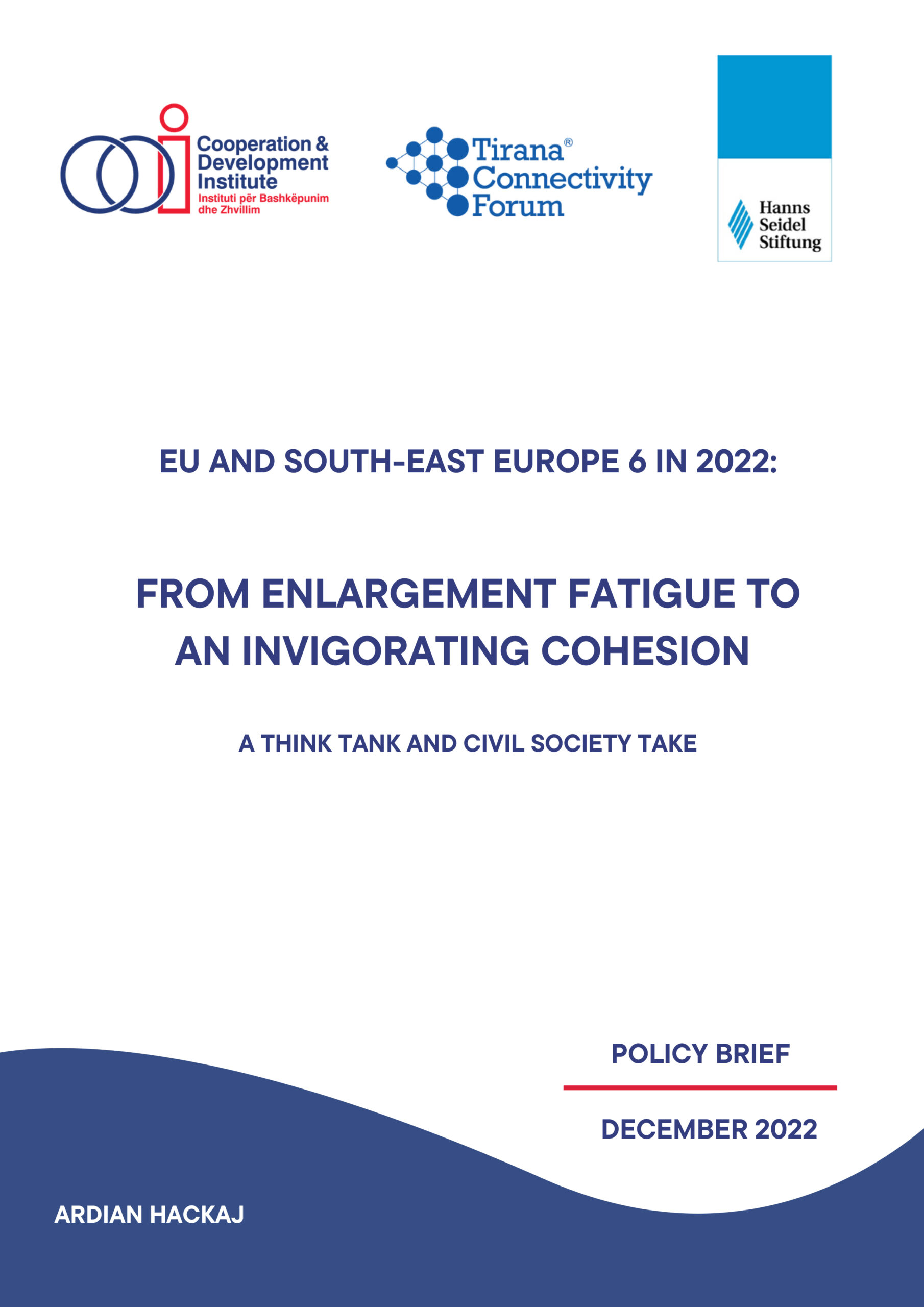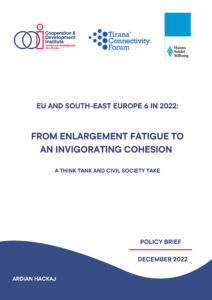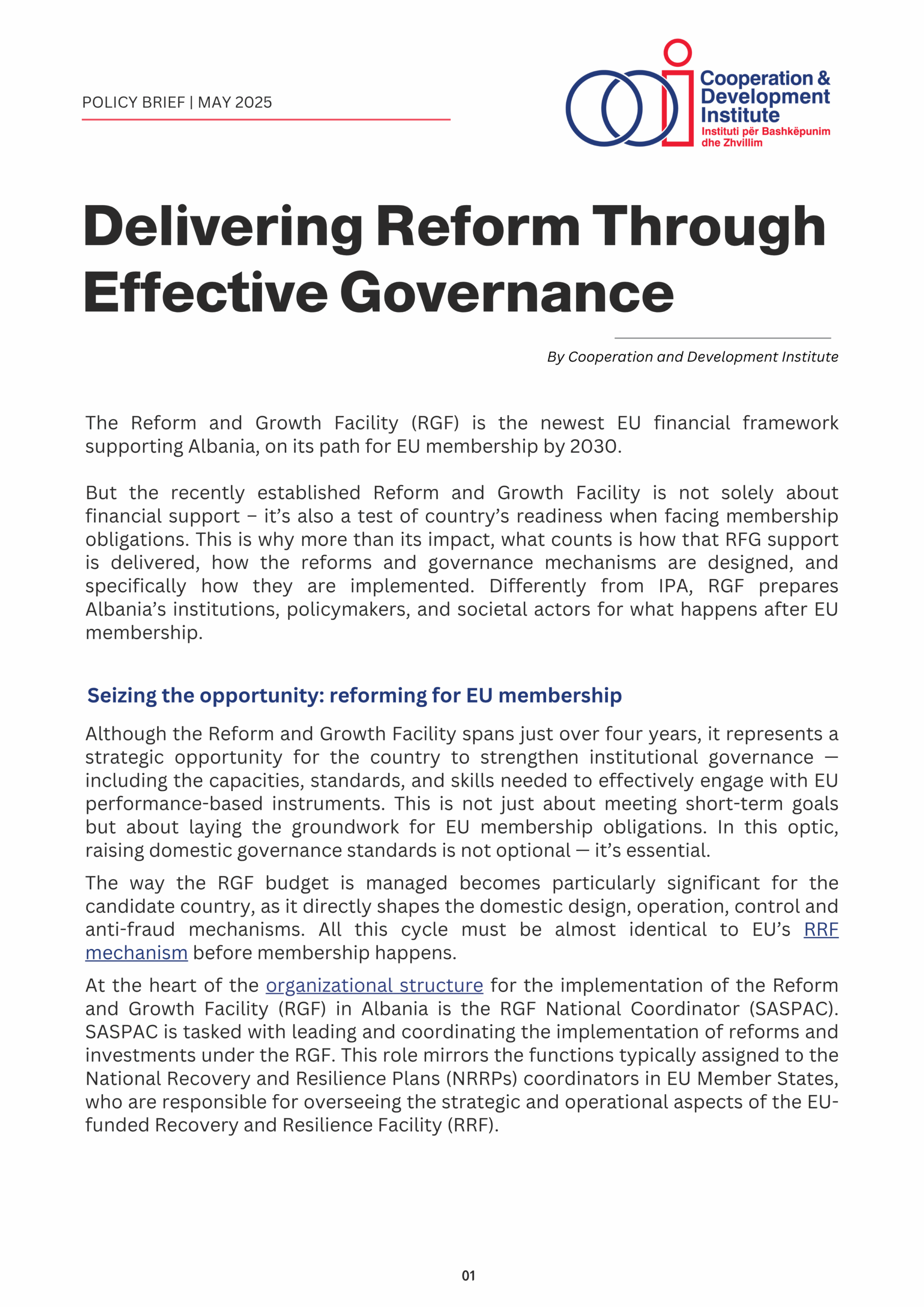From Enlargement Fatigue to an Invigorating Cohesion: EU and South-East Europe 6 in 2022

BERLIN PROCESS in 2022: Key takeaways and next steps
December 27, 2022
Conference on “Enhancing Centre of Excellence and Maritime Affairs (CEMA) regional footprint as maritime services provider”
March 9, 2023During 2022 the EU Enlargement dynamics saw a gradual discourse shift from the chapter-based methodology mainly focused on Rule of Law and normative compliance, towards the importance of fulfilling geopolitical requirements. The alignment of SEE6 and of EU Neighboring countries with the EU foreign policy, and the reinforcement of security and resilience of partner countries took center stage as witnessed by the granting of the candidate status to Ukraine, Georgia and Moldova. The official opening of negotiations with Albania and North Macedonia, the award of candidate status to Bosnia and Herzegovina as well as the decision to apply visa-free movement for Kosovo in 2024 at the latest, were other very clear signals of the renewed geopolitical importance of the region.
Think Tanks and Civil Society have had a very active role in the debates covering a large range of issues from the impact of the war in Ukraine to Enlargement to policy-making recommendation on sectoral issues in green transition, energy security or European transport networks. This aggressive stance towards a more active role in policymaking indicates a gradual shift of CSO contribution beyond the traditional “watchdog” assignment.
As it results from three pan-European events held in the 2nd semester of 2022, the main takeaways from 2022 include the need to hold SEE6 institutions accountable on their engagements; to involve specialized CSO in policy-making; to follow up, focus on & engage in the implementation of signed agreements, and to connect CSO with steering mechanisms and political processes of Enlargement.
All those developments bring the interest of the territory and of its citizen at the heart of the EU efforts. This is why the bottom-up Cohesion rationale (based on territory, development and citizen) must be significantly reinforced to complement the top-down Enlargement dynamics (that focuses on the political, institutions and normative context).





National Parliament and the Reform Agenda 2024-2027
Read more